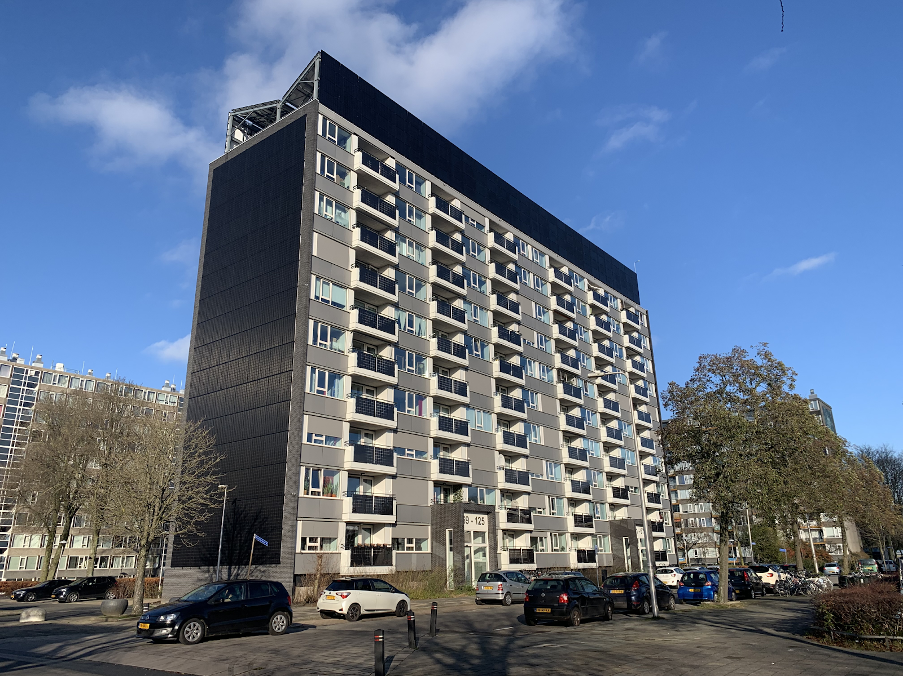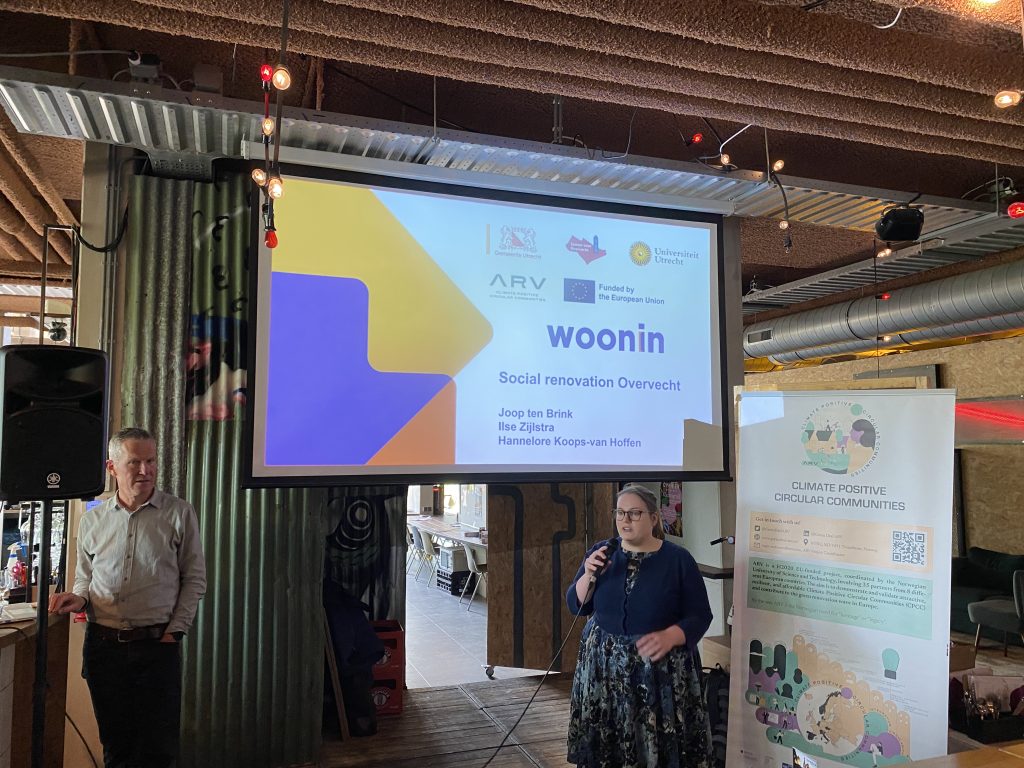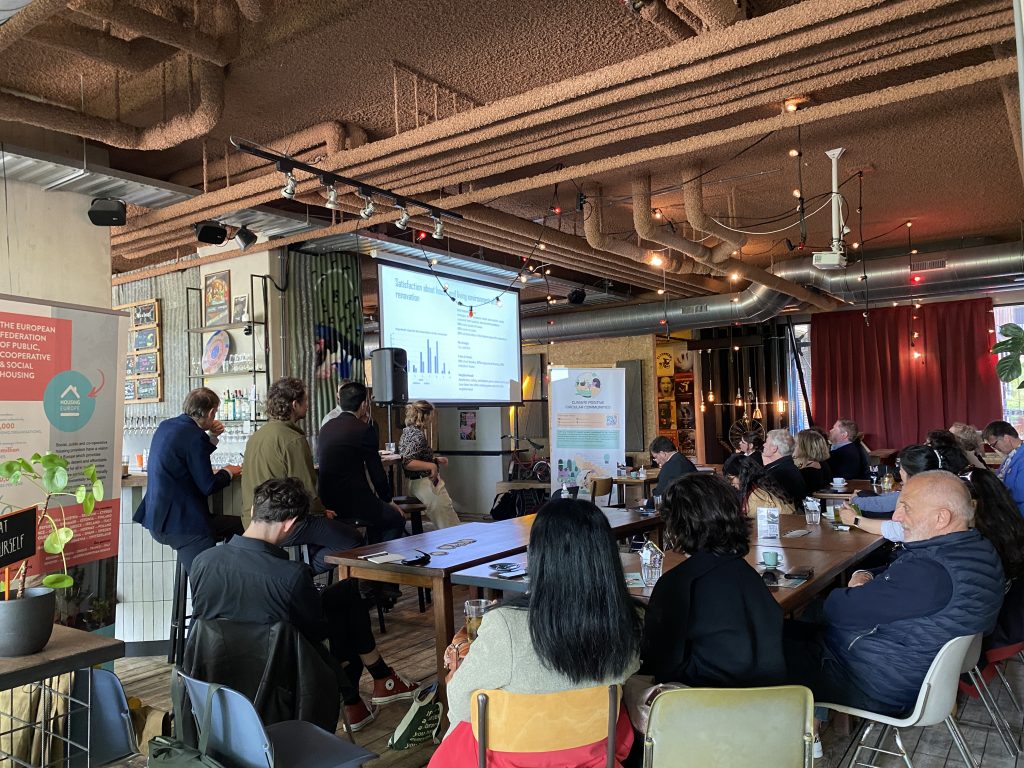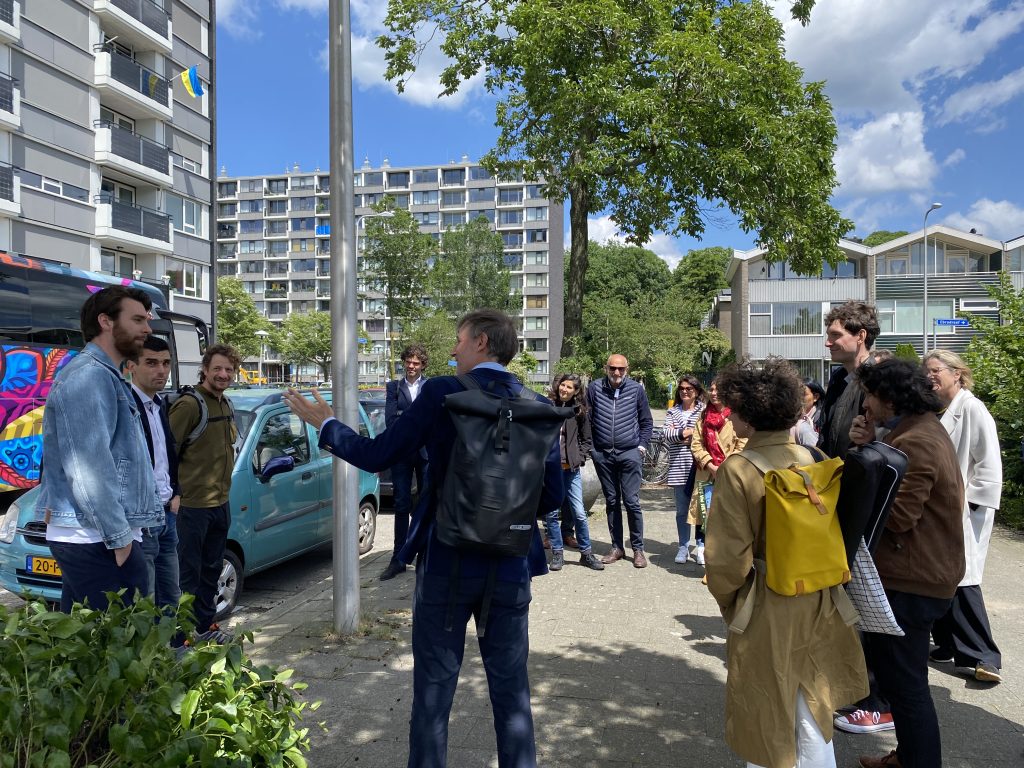On 05 June, Housing Europe together with the City of Utrecht and local social housing providers Woonin and Bo-ex, held a workshop focused on revitalising post-war social housing estates through energy efficient retrofitting and community building. This event, hosted in Utrecht (Netherlands), was part of the EU-funded project ARV, which aims to accelerate the renovation rate in Europe through the roll-out of Climate Positive Circular Communities.
The XXth century left Europe with the legacy of modernist architecture and planning, widely known for its functional approach to building and space design. The modernist movement, associated with Le Corbusier in France and the Bauhaus style in Germany, borrowed ideas from industrial production to revolutionise housing construction. Most social housing estates built in the 60-70s in western Europe followed the lead to meet the great affordable housing demand that followed WWII. This often translated into massive concrete tower blocks surrounded by an abundance of open green space, which generated inward-looking, isolated housing estates with physical boundaries that segregated lower-income groups from the city. Eventually, modernist estates became a focal point of social exclusion and criminality.
Organised within the World Garden City Conference 2024, the workshop aimed to explore the potential of building renovation as an opportunity to foster social inclusion and engagement in deprived social housing estates, using the innovative approaches demonstrated in the Overvecht Noord district in Utrecht as part of ARV.
The Overvecht-Noord in the north-side of Utrecht is a post-war high-rise district built between 1960-1970 to account for the quick rise in urban population. Characterised by a high share of low-quality social housing units, the district is home to a majority of low-income multi-ethnic households. Overvecht is affected by structural socio-economic issues such as unemployment, poverty, school-dropout, and substance-abuse. In fact, the district has recorded a 10-year shorter life expectancy than the overall Utrecht average.
A guided tour of the Henriettedreef project, the first retrofitted positive high-rise energy building in Europe and owned by Utrecht-based social housing company Bo-ex, showed how pre-fabricated and modular building renovation are becoming successful approaches to fast-track the energy transition.
Completed in 2021 and led by the government-funded Inside Out consortium, the 1960s high-rise apartment building was renovated using the novel ‘Inside Out’ concept, based on pre-fabricated and modular building technologies. In the Henriettedreef the building systems that used to be installed inside, are now integrated outside in the different multi-functional building modules (façade; roof; balcony; climate; data and roof crown modules). This means for instance that the facade module can insulate, ventilate, heat and generate energy, making the renovation faster, more affordable and comfortable for tenants who can stay at home throughout the work.
Thanks to the ARV project, the successful ‘Inside-Out’ experiment in Henriettedreef is now being re-designed to be upscaled in comparable post-war high-rise social housing buildings in Kanaleneiland as ‘Inside-Out concept 2.0’.

Nearby Henriettedreef, social housing provider Woonin is also renovating their post-war building stock in Overvecht Noord to Nearly-Zero Energy standards. They are using the so-called ‘social renovation programme’ combining physical renovation with social support, helping tenants where necessary during renovation and improving liveability in the neighbourhood. The renovation works are a great opportunity to get into direct contact with tenants and to ‘get behind the front door’ and offer additional support in their personal lives.
‘Physical renovation is important but it’s not enough! It doesn’t change the lives of the residents. The liveability of the neighbourhood also has to be improved’ says Joop ten Brink, Senior Real Estate Developer at Woonin.
While it is true that the final results of a renovated home are positive for most tenants, the way to get there is hard. ‘Houses are usually renovated while people are still living there and have moved to another accommodation temporarily for a few weeks. When they go back all their surrounding homes are still being renovated, with many issues – dust, noise, traffic. Social tenants already have many problems in their daily lives and should not handle the extra stress of the renovation’
‘It’s important to use the moment of the renovation when everyone is engaged to do community building’ says Joop. Of course, a housing company cannot do this on its own. This is why Woonin collaborated with a network of local support agencies such as: Buurtteam Utrecht, a local organisation providing translation support to tenants for administrative processes; Work & Income, a local government agency giving financial, educational and job seeking advice; and Dock a community center organising activities for residents.
Social support is provided one year ahead of the renovation works with a series of home visits by Woonin and warm transfer to supporting agencies where necessary. These first visits serve to identify the kind of support that tenants need. During renovation, short communications lines are kept and once work is completed, Woonin follows up one last home visit accompanied by the suitable support agency.
An ‘energy coaching programme’ was also developed to empower citizens to lower their energy consumption and cost and improve their satisfaction with the energy systems in their new renovated dwelling. As well as customised energy advice, real-time energy-meters and ‘energy-boxes’ with gifts were handed out to tenants.
Likewise, setting-up a physical hub in the district was key to engage district residents in the energy transition by organising training and coaching events in the circular pavilion at “Panini Fresco” – a small sandwich shop made from pieces coming from renovated buildings, finally giving the residents a place to meet in the neighbourhood.
Research is currently being conducted by Utrecht University as part of the ARV project on the impact that housing renovation has on tenants’ health based on the THEMA-dreven case. Some preliminary conclusions confirming show satisfaction with their home improved after renovation, although taking a toll on mental health due to stress provoked by the works. This reveals that the most appropriate moment to provide social support is after renovation. Support with renovation stress can increase trust in social partners and institutions and increase residents’ openness to accept help on other domains after renovation. Last, there should be more attention for health issues due to noise, as they are not protected enough by law.
Finally, a peer-to-peer exchange session was facilitated by AEDES, the Dutch Association for Social Housing Corporations and Housing Europe member in the Netherlands, to learn the Overvecht Noord renovation approach and discuss the replication potential in other social housing contexts in Europe.
The workshop attracted social and affordable housing providers from across Europe (to name a few: Société du Logement de la Région de Bruxelles-Capitale, The Austrian Federation of Limited-Profit Housing Associations (GBV), KOVA the association for non-profit rental housing companies in Finland, ACER the public housing agency from Reggio Emilia or Gebalis the public housing agency for the City of Lisbon), local authorities from the Netherlands such as The Hague, the Province of Utrecht or Hilversum, researchers from the Marie Curie Global Fellow and Saxion University of Applied Sciences as well as other relevant networks like Association Regionales des Cites Jardins d’Ile de France and the Town and Country Planning Association (TCPA).
Find the article on BUILDUP.



Want to know more about the new generation of climate positive circular communities (CPCC)? Sign up to our bi-annual newsletter (no spam guaranteed)!
This project has received funding from the European Union's Horizon 2020 research and innovation programme under grant agreement no. 101036723
Want to know more about the new generation of climate positive circular communities (CPCC)? Sign up to our bi-annual newsletter (no spam guaranteed)!
Want to know more about the new generation of climate positive circular communities (CPCC)? Sign up to our bi-annual newsletter (no spam guaranteed)!

This project has received funding from the European Union's Horizon 2020 research and innovation programme under grant agreement no. 101036723

This project has received funding from the European Union’s Horizon 2020 research and innovation programme under grant agreement no. 101036723

Subscribe to our Newsletter
Want to know more about the new generation of climate positive circular communities (CPCC)? Sign up to our bi-annual newsletter (no spam guaranteed)!